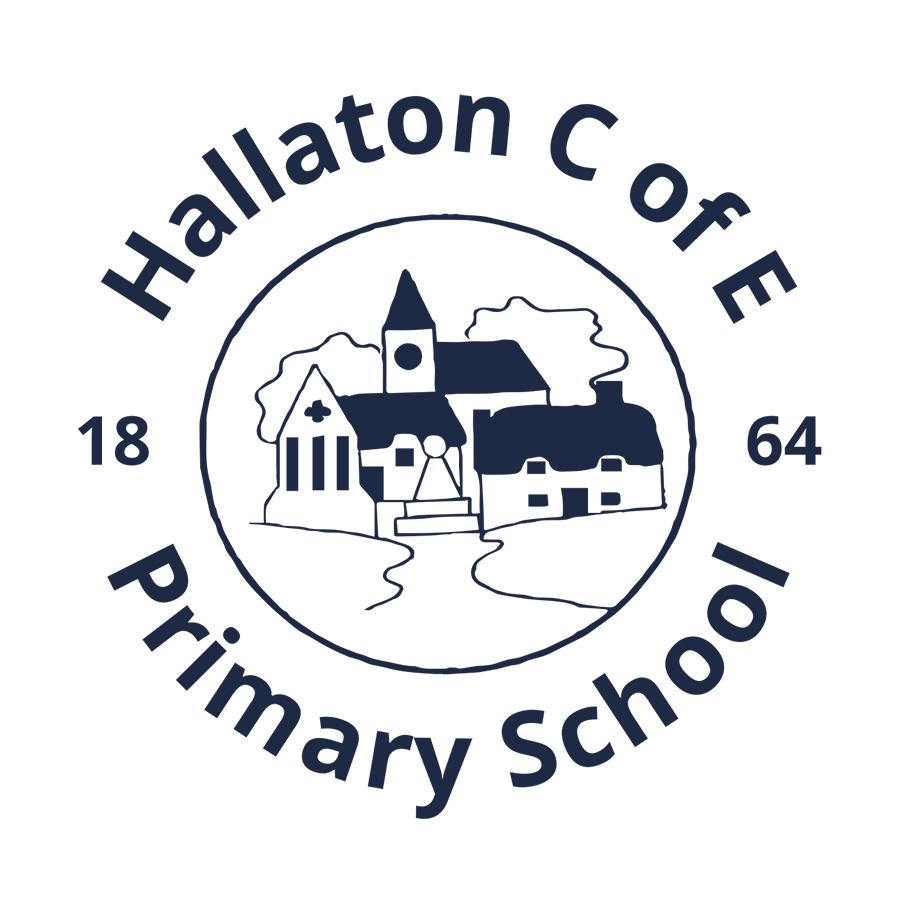Online Safety
Online safety is an important part of keeping our children safe at Hallaton Primary School and is something we take very seriously. This means that we have measures in place to safeguarding pupils from any potential dangers or unsuitable material. All incidents are recorded and are dealt with accordingly.
Children are taught through the curriculum how to stay safe and behave appropriately when they are online both in school and at home.
In order for us to be successful at keeping children safe when online, we regularly share resources and materials with our parents so that they receive the most up to date guidance and can therefore use this information to be able to speak to their children about how to stay safe online when at home.
If you are worried about the way someone has been communicating with you or someone else then please click on the CEOP button below to make a report.
Our ICT Vision
To open up children’s minds to explore ICT opportunities and possibilities, now and in the future. To encourage the independent use of ICT to support their dreams and aspirations in school and beyond.
At Hallaton Primary we make sure our pupils use the internet safely and securely. Through PSHE and Computing sessions children build their awareness from Foundation Stage through to Year 6.
At home, many children are often given unsupervised access to the Internet. This, potentially, allows them to access a wide range of digital material (both good and bad) and bring them into their homes.
Here are some tips to help keep your child safe online:
- Use Child friendly safe websites - There are lots of links to safe websites for children to use in our Useful Websites section. They are great fun to explore, so why not browse through them with your children?
https://kidssearch.com/ - child-friendly search engine - Facebook / Instagram/ TikTok / Snapchat - Many of these sites have a minimum age limit of 13, so we advise that our pupils should NOT be using them. They do not offer a safe level of protection, allowing children to communicate with anyone.
- Ask questions - Talk to your child about what they are doing online and make it clear that you should be able to monitor and access their online activity.
Some links to e-safety guides and information:
- Thinkuknow - containing internet safety advice for those aged from 5 to 16, along with parents and teachers, this site is produced by CEOP (the Child Exploitation and Online Protection Centre).
- CEOP reporting link - Receive help and advice as well as the option to report any instance of sexual contact or harmful material to the Child Exploitation and Online Protection Centre.
- Childnet- lots of useful advice for keeping yourselves and your children safe on the Internet.
- Family Lives - Information and advice about bullying, mental health for children, parents and schools.
- Kidscape - An organisation which helps to prevent bullying and child abuse.
- Child Line - Childline is the free helpline for children and young people in the UK. Call 0800 1111
- NSPCC - Online safety guides for parents; Online Games, Social Media and Internet Connected Devices.
